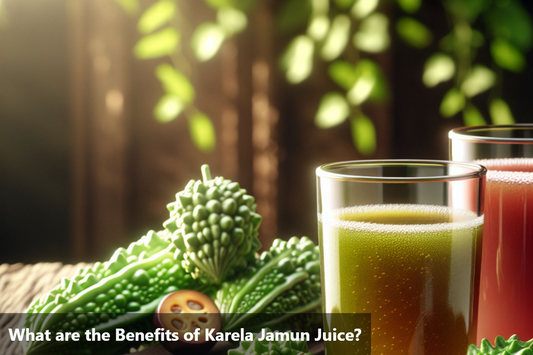Dry fruits are a popular snack choice for many people. Still, for those with diabetes, it can be challenging to find suitable options. However, with the proper knowledge, dry fruits can be a healthy and delicious addition to a diabetic diet. In this article, we will discuss the top 5 diabetic-friendly dry fruits and their benefits.
Why Are Dry Fruits Good for Diabetics?
Dry fruits are a great source of essential nutrients, including vitamins, minerals, and fibre. They are also low in calories and have a low Glycemic index, making them a suitable snack option for those with diabetes. The glycemic index (GI) measures how quickly a food raises blood sugar levels. Foods with a low GI are digested and absorbed slowly, resulting in a gradual rise in blood sugar levels, making them a better choice for people with diabetes.

Benefits of Dry Fruits for Diabetics
Low Glycemic index:
As mentioned earlier, dry fruits have a low Glycemic index, making them a suitable snack option for people with diabetes. They do not cause a sudden spike in blood sugar levels, making them a safe choice for those with diabetes.
Rich in Fiber:
Dry fruits are an excellent source of dietary Fiber, which helps slow down the absorption of sugar in the body. This helps in maintaining stable blood sugar levels and also aids in digestion.
Nutrient-dense:
Dry fruits contain essential nutrients like vitamins, minerals, and antioxidants, making them a healthy snack for people with diabetes. They provide a range of health benefits and can help in managing diabetes.
List of dry fruits for people with diabetes to eat:
Almonds
Almonds are a popular dry fruit that is packed with essential nutrients. They are a rich source of healthy fats, protein, and fibre, making them an ideal snack for diabetic people. Almonds also have a low glycemic index, making them a safe choice for those with diabetes. They are also rich in magnesium, which is linked to improved insulin sensitivity and blood sugar control.
Walnuts
Walnuts are another excellent choice for people with diabetes. They are rich in healthy fats, protein, and fibre, making them a filling and nutritious snack. Walnuts are also a good source of omega-3 fatty acids, linked to improved heart health and reduced inflammation. They also have a low glycemic index, making them a safe choice for people with diabetes.
Pistachios
Pistachios are a delicious and nutritious snack option for people with diabetes. They are a good source of protein, fibre, and healthy fats, making them a filling and satisfying snack. Pistachios also have a low glycemic index, making them a safe choice for diabetes patients. They are also rich in antioxidants, which can help manage blood sugar levels.
Cashews
Cashews are a popular dry fruit that is rich in essential nutrients. They are a good source of healthy fats, protein, and fibre, making them a filling and nutritious snack for people with diabetes. Cashews also have a low glycemic index, making them a safe choice for diabetes patients. They are also rich in magnesium, which is linked to improved insulin sensitivity and blood sugar control.
Raisins
Raisins are a popular dry fruit that is rich in essential nutrients. They are a good source of fibre, vitamins, and minerals, making them a healthy snack for diabetic people. Raisins also have a low glycemic index, making them a safe choice for diabetes patients. They are also rich in antioxidants, which can help manage blood sugar levels.
How to Incorporate Dry Fruits into a Diabetic Diet
Dry fruits can be incorporated into a diabetic diet in various ways. Here are a few ideas:
-
As a snack: Dry fruits can be eaten independently or mixed with other nuts and seeds for a healthy and filling snack.
If you are looking for diabetic-friendly snacks that are both delicious and nutritious, Look no further! Our webpage offers a wide range of snacks specifically designed for diabetic patients. These snacks are carefully crafted to help you maintain stable blood sugar levels while satisfying your taste buds.
Explore our full range of snacks for diabetic patients and place your order today. - In smoothies: Adding a handful of dry fruits can boost nutrients and flavour
- In salads Dry fruits can add a touch of sweetness and crunch to salads, making them a delicious and healthy addition to your meal.
- In oatmeal or yoghurt: Sprinkle some dry fruits on top of your oatmeal or yoghurt for a nutritious and satisfying breakfast.
Precautions to Take When Consuming Dry Fruits for Diabetics
While dry fruits can be a healthy addition to a diabetic diet, it is essential to keep a few things in mind:
- Portion control: Dry fruits are high in calories, so it is crucial to consume them in moderation. Stick to a handful (about 1/4 cup) of dry fruits per serving.
- Avoid added sugars: Some dry fruits, like cranberries and cherries, may have added sugars. It is best to opt for unsweetened versions to avoid spikes in blood sugar levels.
- Consult with a doctor:If you have any concerns or questions about incorporating dry fruits into your diabetic diet, it is best to consult with your doctor or a registered dietitian.
| Dry Fruit | Calories (per 1/4 cup) | Carbohydrates (g) | Fiber (g) | Sugar (g) | Protein (g) | Fat (g) |
|---|---|---|---|---|---|---|
| Almonds | 170 | 6 | 4 | 1 | 6 | 15 |
| Pistachios | 180 | 4 | 2 | 1 | 4 | 18 |
| Walnuts | 170 | 8 | 3 | 2 | 6 | 14 |
| Cashews | 160 | 9 | 1 | 2 | 5 | 12 |
| Pecans | 200 | 4 | 3 | 1 | 3 | 20 |
| Brazil Nuts | 190 | 3 | 2 | 1 | 4 | 19 |
This chart provides information about the calorie content, carbohydrates, Fiber, sugar, protein, and fat for each dry fruit. It can help diabetic patients decide which dry fruits to incorporate into their diet. Remember to ensure that the information provided in the chart is accurate and current.
Additionally, you can mention in the article that these values may vary slightly depending on the brand and specific variety of the dry fruit. It is always a good idea to check the nutrition label on the packaging for the most accurate information.
Conclusion
Dry fruits are a healthy and delicious snack option for people with diabetes. They are packed with essential nutrients, have a low glycemic index, and can help manage blood sugar levels. Incorporating dry fruits into a diabetic diet can provide various health benefits and help maintain stable blood sugar levels. However, it is essential to consume them in moderation and consult with a doctor if needed. With the proper knowledge and precautions, dry fruits can be a valuable addition to a diabetic diet plan.
Frequently Asked Questions (FAQs):
1. Can people with diabetes eat figs?
- Yes, people with diabetes can eat figs. Figs are a good source of fibre and have a low glycemic index, which means they do not cause a rapid rise in blood sugar levels. However, it is essential to consume them in moderation as part of a balanced diabetic diet.
2. Can diabetic patients eat almonds?
- Yes, diabetic patients can eat almonds. Almonds are a nutritious snack for people with diabetes as they are low in carbohydrates and high in healthy fats, fibre, and protein. They also have a low glycemic index, making them a good choice for managing blood sugar levels.
3. Is dried apricot good for people with diabetes?
- Dried apricots can be consumed by people with diabetes in moderation. They are a good source of dietary fibre, vitamins, and minerals. However, it is essential to note that dried apricots are higher in sugar content compared to fresh apricots. Therefore, it is advisable to limit the portion size and monitor blood sugar levels when consuming dried apricots.
Remember, it is always recommended to consult with a healthcare professional or a registered dietitian before making any significant changes to your diet, especially if you have diabetes.
This Blog post is an initiative by DiabeSmart, to provide accurate and Nutritionist / Doctor approved information related to Diabetes. DiabeSmart is India's first Food brand designed specifically for Diabetics, that has been clinically tested on Diabetics and Pre-Diabetics to deliver 55% - 70% lower Sugar spikes. DiabeSmart is part of Lo! Foods - India's leading brand for Everyday Functional Health foods.













